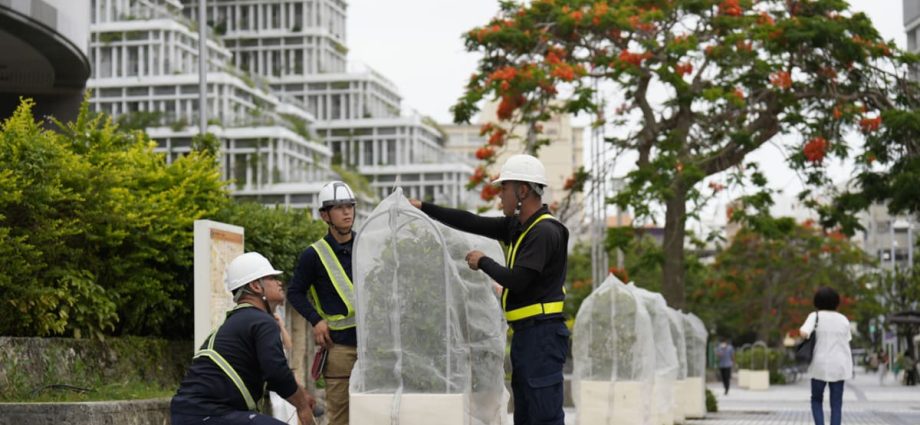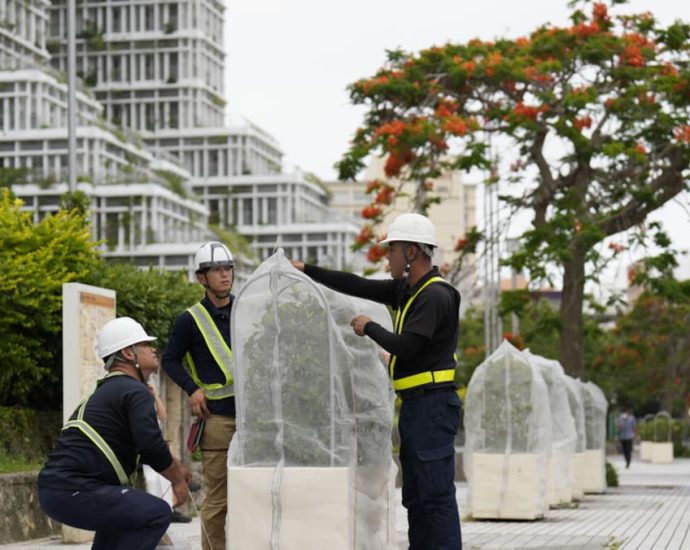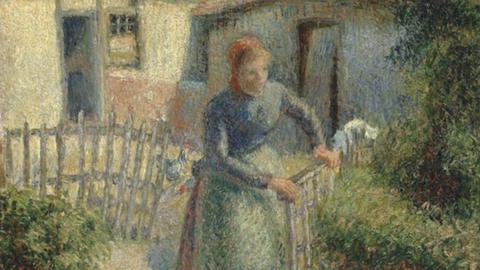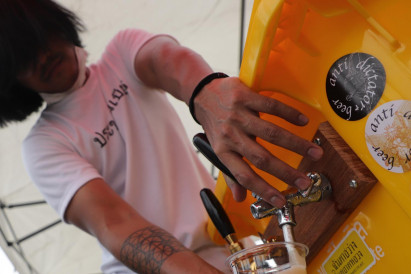Japan slammed by torrential rain as Typhoon Mawar nears
TOKYO: Parts of Japan were slammed by torrential rain on Friday (Jun 2) as Typhoon Mawar neared, bringing winds and heavy rain to a wide swathe of the country and prompting authorities to advise tens of thousands to evacuate. Mawar, which wreaked havoc on Guam earlier this week, has weakenedContinue Reading
Japan braces for torrential rain as Typhoon Mawar nears
TOKYO: Japan braced for torrential rains on Friday (Jun 2) as Typhoon Mawar neared, bringing wind and heavy rain to a wide swathe of the main islands. Mawar, which wreaked havoc on Guam earlier this week, has weakened to tropical storm strength from its earlier super typhoon status, and theContinue Reading
BTSC says it’s ready to invest in ‘missing link’

The Bangkok Mass Transit System Plc (BTSC) is ready to invest in a 2.6-kilometre missing link to connect its Yellow Line monorail to the Green Line of the Mass Rapid Transit Authority of Thailand (MRTA) at Ratchayothin and Lat Phrao stations.
Surapong Laoha-Unya, CEO of BTSC, on Thursday said the extension would benefit commuters.
“We are willing to invest in the project because the extension will benefit everyone. We are ready to discuss the matter with the MRTA,” said Mr Surapong.
The Yellow Line links Lat Phrao in Bangkok with Samrong in Samut Prakan. There are 23 stations along the 30.4-kilometre line. The monorail has a connection to the MRTA’s Green Line at Samrong station.
The missing link would run along Ratchadaphisek Road in Bangkok and link to the Green Line at Ratchayothin station.
According to a source, the extension project is worth around 3-4 billion baht. Without the missing link, commuters wishing to switch from the Yellow Line to the Green Line will have to re-route their journey through the MRTA’s Blue Line, increasing travel costs for commuters.
The source said if the MRTA agrees with the BTSC’s proposal to invest in the missing link, the MRTA would also ask for compensation for lost revenues from its Blue Line.
Mr Surapong said the Yellow Line would kick off a trial service at 9am on Saturday before its full commercial launch around the beginning of next month.
Currently, the BTSC has submitted an estimated fare range based on the consumer price index (CPI) to the MRTA for approval. The rate will be 15-45 baht.
Afterwards, the MRTA will submit the proposal to the Ministry of Transport and the cabinet for further approval.
“The BTSC is ready for the trial run as the safety and facilitation of the project is now provided. The project will help mitigate traffic congestion, particularly during rush hours, on Lat Phrao Road,” he said.
The BTSC estimated that it would earn an income of around a billion baht from the launch of the Yellow Line.
Poland’s quest to retrieve priceless Nazi-looted art
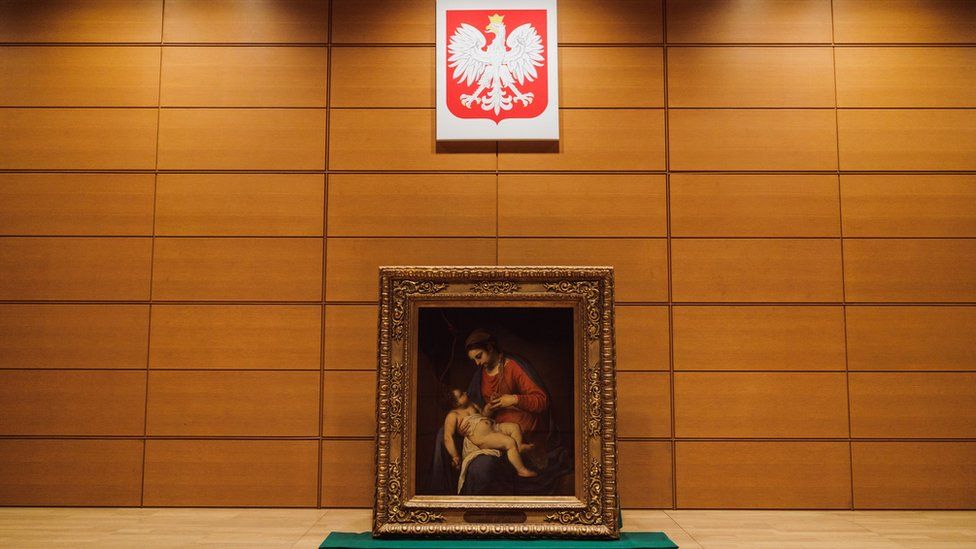 Polish Institute in Tokyo
Polish Institute in TokyoWhen the Nazis occupied Poland in World War Two, many of the country’s priceless pieces of art were stolen.
One of those was Madonna with Child, a 16th Century painting attributed to Italian Alessandro Turchi. A Nazi official who oversaw the looting of art included the painting on a list of hundreds taken from occupied Poland.
But the painting is finally returning home, after being discovered in Japan and handed over to Polish authorities during a ceremony in Tokyo this week.
It is one of 600 looted artworks that Poland has managed to successfully bring home, but more than 66,000 so-called war losses are yet to be recovered.
Poland recently launched a campaign seeking the return of hundreds of thousands artworks and other cultural items still missing after German and Soviet occupations in World War Two. It is also seeking $1.3 trillion in reparations from Germany for damage incurred by occupying Nazis.
Experts believe more art will be discovered with the passage of time as heirs to looted artwork attempt to sell pieces without being aware of their history.
Madonna with Child is thought to have been transferred to Germany in 1940 during the Nazi occupation of Poland. The Nazis often looted art belonging to Jewish families before killing them.
The painting was included on a list of 521 artworks in occupied Poland compiled by Kajetan Mühlmann, a Nazi official who oversaw the looting of art.
The painting reappeared in the 1990s, when it was sold at a New York auction.
It was due to be auctioned in January last year, but the sale was halted after Polish authorities spotted the piece. Once it was proven to be the looted painting, the auction house and the painting’s owner agreed to return it to Poland. An official handing-over ceremony took place in Tokyo on Wednesday.
Polish art historian Natalia Cetera said the return of masterpieces like Madonna with Child help restore pride in the country’s art heritage.
Poland had Rembrandt and Raphael pieces stolen, as well as internationally recognised Polish masterpieces, she said.
“So whenever there is this situation where the artworks come back to Polish collections, you feel proud because it shows the importance of Polish collections that is sometimes forgotten,” Ms Cetera told the BBC.
“It means we have some strong focus on remembering our heritage, our collections and the strength we used to have in art, because this is something we tried to rebuild after the war and this is a long process to be recognised again.”
Ms Cetera says she believes there has been a shift in recent years in cultural heritage “being seen as a common good”.
Christopher Marinello, founder of Art Recovery International, has spent more than 30 years finding missing masterpieces. He believes that more pieces could start showing up as looted artwork gets handed down to the next generation, with the new heirs unaware of their history.
“We’re talking about a generation ago now and these looted objects are being left to their heirs when the possessors pass away and the children don’t necessarily know the history and they decide to sell it,” Mr Marinello said.
Polish authorities have recorded stolen pieces of artwork on Interpol and other private and government databases.
“There’s also a great number of art historians out there who are doing research of looted artworks from Poland and they’re spotting them too,” Mr Marinello said.
“The more that tech improves and auction houses start to post everything online, there’s more eyes looking for the objects that have been looted.”
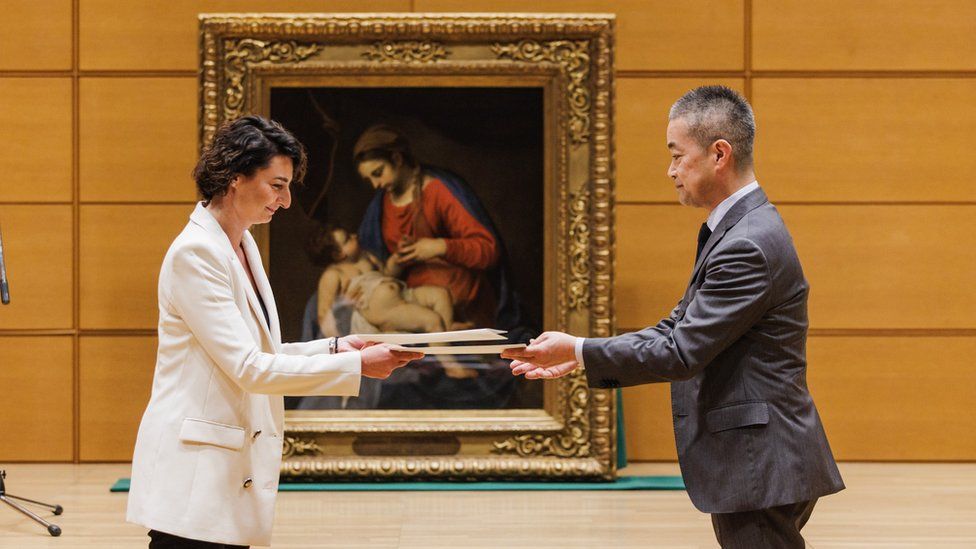
Mr Marinello believes there is also a “generational shift” in attitudes to stolen masterpieces. He’s currently working on a case where a man in Chicago contacted him about a piece he believed his grandfather stole from a German museum in World War Two.
“They’d had it for an entire generation and now they realise that they can’t sell it and that they would rather give it back than have any more trouble over the issue.”
But the law varies from country to country, and sometimes a stolen piece can only be returned with the goodwill of the current owner.
Japan, where Madonna with Child was found, “is not a great country to recover stolen art from”, Mr Marinello says.
“It’s really up to the possessor in many cases to do the right thing… to understand that something was looted or stolen and that it should be returned, because you can’t rely on a lawsuit under Japanese law,” he said.
Ms Cetera said that the successful retrieval of Madonna with Child was a source of pride, but is unsure whether the passion for bringing stolen artwork back to Poland will continue with future generations.
“The question is whether it is important to the next generation – Gen Z and younger generations, do they really care? From what I observe, this might not be the case,” she said.
Digitised art collections might mean people losing interest in the physical form, she said.
“At some point maybe we won’t have to retrieve artworks… because we will have it in the Cloud and we will be able to reach it any time anywhere, no matter who has it.
“This digitisation and tech that is coming might at some point suppress the need of retrieving physical artworks.”
You may also be interested in:
This video can not be played
To play this video you need to enable JavaScript in your browser.
Related Topics
-
-
24 October 2019

-
-
-
1 May 2019
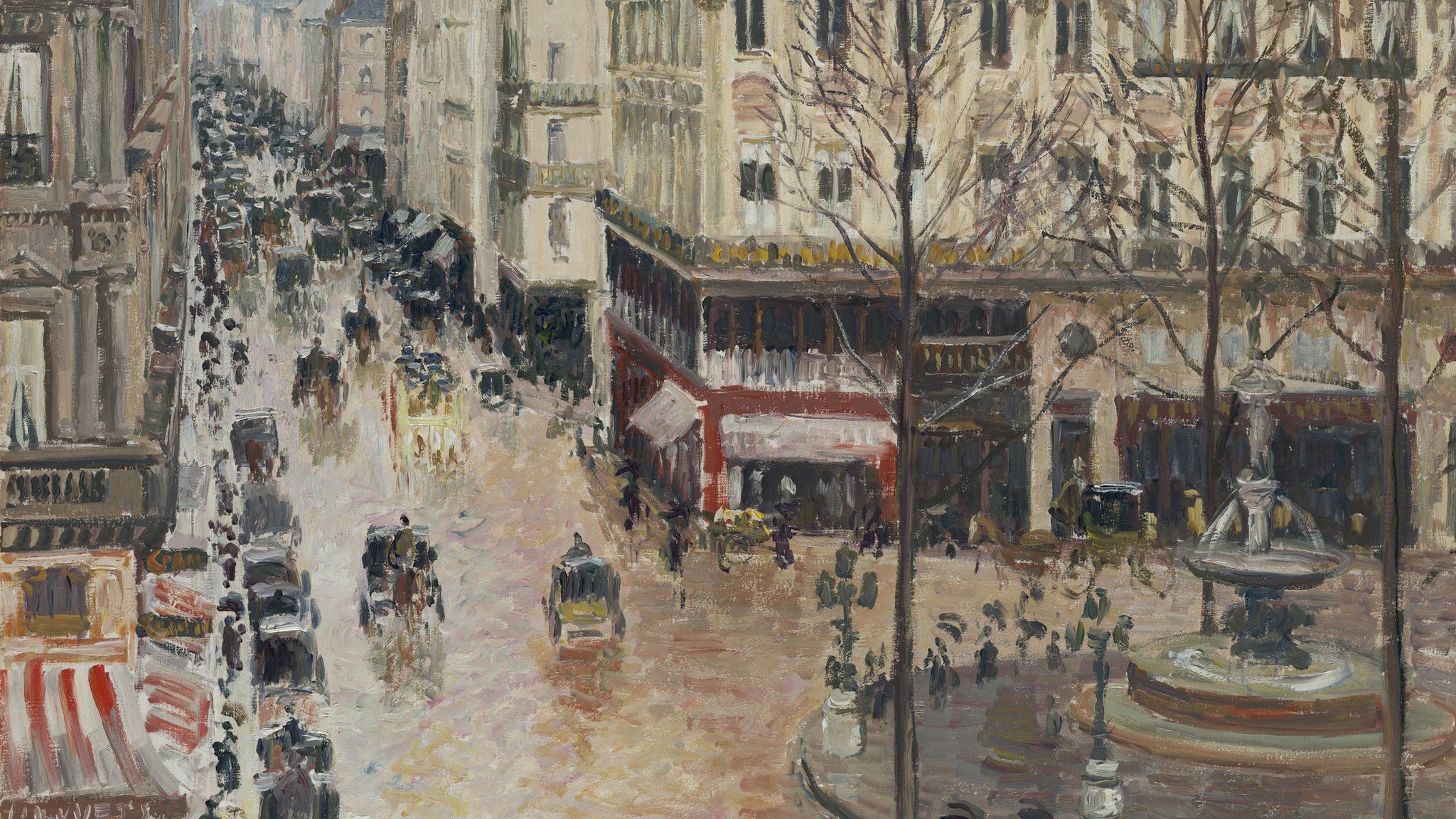
-
-
-
1 June 2021
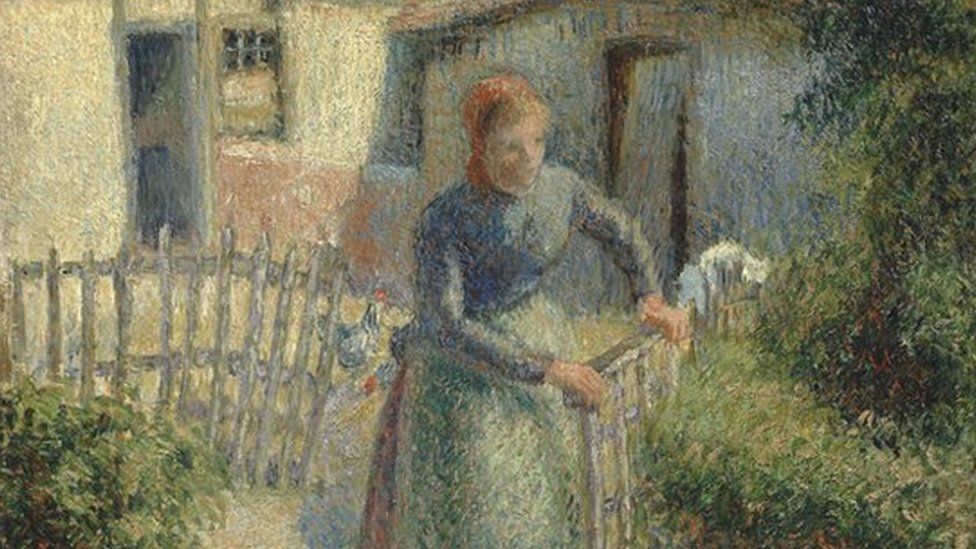
-
GPO touts new drug to help quit smoking

The Government Pharmaceutical Organization (GPO) has unveiled a locally developed cytisine — an alkaloid that occurs naturally in certain plants — that can help people quit smoking, reduce treatment costs and potentially save over 12 million baht in imported drugs.
Dr Mingkwan Suphanpong, the GPO’s director, said there are more than 9.9 million people in Thailand over the age of 15 who are classed as frequent smokers.
She was speaking on World No Tobacco Day, which fell on Wednesday.
Considering that some of these will die from smoking-related diseases like lung or oesophageal cancer, emphysema and heart disease, the health costs are significant, she said.
Thailand has five listed drugs that can be prescribed to help people kick the habit: varenicline, bupropion, nicotine replacement therapy, nortriptyline and little ironweed.
Only the last two appear on the National List of Essential Medicines, said Dr Mingkwan.
Human trials have shown the GPO’s cytisine to be safe and effective, she said.
Dr Ming- kwan added the drug is now in the process of being approved by the Food and Drug Administration.

Mingkwan: Drug costs less
She added that cytisine GPO will be a regulated drug which is only available at hospitals. Dr Mingkwan said the cost of helping smokers quit will be greatly reduced if cytisine can serve as a replacement for varenicline. Moreover, the GPO version can save up to 12 million baht per year by serving as a substitute for imported medicine, she said.
The GPO plans to distribute cytisine in January. The Department of Thai Traditional and Complementary Medicine has suggested smokers try herbal medicine first to kick the habit.
Dr Thiti Sawangtham, the department’s deputy permanent secretary, said the three best herbal medicines in this regard are clove, little ironweed and lime.
The first two can be taken orally to reduce nicotine cravings while ironweed can be brewed as an after-meal tea.
Dr Thiti said Chinese traditional medicine recommends acupuncture to quit smoking. Research suggests this produces serotonin, which eases the cravings for nicotine and helps people balance their metabolism and sleep cycle. More information about the application of herbal medication is available on the department’s official Facebook page or by calling (02) 591-7007.
SMALL FIRMS EYE BOOZE LIFT

Small breweries and local distilleries are hopeful of a bright future if the Move Forward Party forms a coalition government and pushes changes to liberalise the alcohol industry as promised.
Despite clear economic opportunities from diversifying craft beers and in the speciality spirits market, small businesses have been struggling to survive, let alone thrive, in Thailand’s heavily monopolised alcohol industry, due to harsh laws and regulations controlling production and retailing.
The party’s MP in Bangkok’s Constituency 22, and its leading liquor liberalisation campaigner, Taopiphop Limjittrakorn, told the Bangkok Post that amending these laws to promote fairer competition for small enterprises and break the liquor industry monopoly will be one of the first things the party will push in parliament.
“Our first step will be to amend the ministerial regulations on liquor production, which can be done within the first week of the first parliamentary session to unlock the remaining barriers preventing small-scale distilleries from entering the business,” Mr Taopiphop said.
“We’re now opening dialogue to discuss other issues such as excise rate changes and loosening alcohol control rules to reach a consensus on solutions to these issues since they require the amendment of other related acts, which needs more preparation and takes more time.”
Sore points
As the co-founder of Sandport Brewery, a small craft brewery in Chatuchak district, Supapong Pruenglampoo is one entrepreneur directly affected by the restrictive rules, which he claims were written heavily in favour of the giant conglomerates and designed to put off small firms from entering the industry.
“The first obstacle every newcomer in the brewing business had to face was meeting the demanding criteria for registering a business licence,” Mr Supapong said.
The system required applicants to have at least 10 million baht of registered capital and a minimum production capacity of 100,000 litres per year to get a licence for brewpubs, while a minimum production capacity of at least 10 million litres per year was needed to qualify for a bottled beer manufacturing licence.
Despite these rules for craft brewery registration having been lifted in 2022, the criteria for distilled spirits remain the same, as they require a minimum production capacity of 30,000 litres per day to gain a licence for distilled spirit production.
“This is the first high barrier that keeps small entrepreneurs with limited resources out,” he said.
Also, he said microbreweries are taxed at the same high rate as the big beer companies at 22% of the retail price, despite the production costs of microbreweries being incomparably higher.
This forces small craft beer brewers to sell their products at a much higher price than mass-produced beers.
“Microbrewers are also regulated by strict rules under the Alcoholic Beverage Control Act that prohibit us from advertising and selling our products online, and we are subjected to similar fines as the big brands of up to 500,000 baht if found violating the rules,” he said.
“So, we are happy to hear that Move Forward plans to push the liquor liberalisation policy since we want competition under fair rules.”
Thanakorn Tuamsa-ngiam, founder of Prachachon Beer (Beer People), a social network group advocating for liquor liberalisation, said the enforcement of laws is also a major problem.
“When enforcing alcohol control rules, officials often overlook the misdeeds of big companies and instead focus on prosecuting small business owners. They can interpret the law in a way to penalise small businesses and ordinary people deliberately,” he said.
“I myself am a victim of such actions, as I was prosecuted for violating the Alcoholic Beverage Control Act by advertising alcoholic beverages online, even though I only posted educational articles about craft beer on the Prachachon Beer Facebook Fanpage.”
Opportunities ahead
Despite the law discouraging small liquor enterprises, Mr Thanakorn said more people are interested in homebrewing and setting up their own businesses, which aligns with global trends in an alcohol industry which is diversifying.
“Thailand has diverse agricultural products that can be bases for developing craft beers and speciality spirits. With support from authorities, we can be a global hub for craft beer tourism, which can lift the economy and boost tourism,” he said.
“We also need technical and innovative support on brewing craft beers and distilling speciality spirits since, despite our rich biodiversity resources, we still rely on imported materials. So, we also hope to collaborate more with researchers and academics.”
Meanwhile, one booze tycoon, Piti Bhirombhakdi, a director of Boon Rawd Brewery Ltd and a fourth-generation scion of the Singha Beer corporate empire, says he also supports MFP’s bid to liberalise the liquor industry.
Although the policy is aimed at countering the dominance of the big beer companies and promoting small businesses, Mr Piti said he does not have any problem with new competitors in the market. Instead, he says this is a great opportunity for Singha Beer to evolve, diversify and adapt to the changing market landscape.
“Sure, there will be more intense competition for market share, but this is a normal thing in the free market. I also believe liquor liberalisation will bring much greater benefits to our company and the industry,” Mr Piti said.
Despite the Move Forward Party’s policy receiving support from stakeholders in the alcohol industry, some medical experts are concerned over the possible social impacts that easier access and possibly higher alcohol consumption could bring if controls are loosened.
“I agree liquor liberalisation can help boost the economy and support small local businesses, but the strict laws controlling the advertising and sale of alcohol are also important to prevent adverse impacts on public health and society from irresponsible drinking,” Dr Udomsak Saengow, director of the Research Institute for Health Sciences at Walailak University, said.
EC urged to speed up probe into MFP leader

A group of political activists calling themselves Love Democracy on Thursday petitioned the Election Commission (EC) to speed up the probe into Move Forward Party (MFP) leader Pita Limjaroenrat’s alleged ineligibility to run in the election.
“We’d like to offer the EC moral support and urge it to carefully examine and decide on the case with prudence for the sake of the country and under the democratic system with the King as head of state as soon as possible,” said Somchai Chobchai, a representative of the group.
Chinawart Jankrajang, another group representative, said he thought the EC could have worked faster on the allegation.
But he said his group would respect the EC’s final decision on Mr Pita’s alleged ineligibility linked with his holding of shares in the media company iTV Plc, believed to be prohibited under the constitution.
Mr Chinawart insisted he has no political bias, saying if Mr Pita is cleared, he will be more than happy to see the MFP leader front the new coalition government.
But if Mr Pita is proven guilty as accused, Mr Chinawart said he thinks all sides should accept that outcome and live with it.
When asked about the possibility of MFP supporters taking to the streets if Mr Pita is disqualified as an MP, Mr Chinawart said they should respect the EC’s decision.
“But taking to the streets or not is for them [MFP’s supporters] to decide. As for me, I’m done with political conflicts which have cost the country lots of opportunities,” he said. “If they take to the streets again, the country’s situation will become even worse. I, therefore, would like everyone to also think about this and accept the truth in the event Mr Pita is found guilty.”
Meanwhile, Arnon Nampa, a leader of the Ratsadorn protest group, posted on his Facebook page his intention to lead street protests if Mr Pita is found guilty and disqualified. He insisted political gatherings are a basic right allowed under the constitution.
He said the government wouldn’t be able to contain massive protests this time as demonstrators know what they will have to do even when their protest leaders are detained.
He was responding to reports about a call by a senator for the formation of a so-called national government which was accompanied by opinions from some analysts that Mr Pita might not survive the shareholding case.
MFP urged to end graft in logistics

Lorry operators called on the Move Forward Party (MFP) to stamp out bribery in the transport sector on Thursday, saying the practice has been around for about two decades.
Land Transport Federation of Thailand (LTFT) chairman, Apichart Prairungruang, on Thursday led 30 representatives from logistics companies in submitting a petition to MFP MP-elect Wiroj Lakkhanaadisorn, calling on the party to act swiftly to end the racket.
According to Mr Apichart, kickbacks to highway police add to their operating costs. He said LTFT members have tried to raise the issue in the past, but they were met with intimidation instead.
Out of the 1.5 million lorry operators registered with the Department of Land Transport (DLT), the LTFT estimated around 200,000 regularly pay bribes so their trucks can carry loads beyond the legal limit, he continued, though he insisted none of the LTFT’s 400,000 members engage in such a practice.
He said the bribes range from 3,000-15,000 baht, depending on the load amount an operator wishes to put on a truck. He added those who have paid for a “premium” package can carry anything without a weight limit.
“In the past, there were four to five stickers. Now there are 40-50 stickers,” he said.
Mr Apichart said the MFP’s campaign against the bribes had given the federation hope that the issue would be dealt with seriously.
Shortly after the MFP raised the issue, the Royal Thai Police transferred Pol Maj Gen Ekkaraj Limsangkat, commander of the Highway Police Division, to an inactive post at the Operations Centre of the Central Investigation Bureau (CIB).
However, Mr Apichart said it would take more than that to stamp out the practice, as it is a deep-rooted problem.
Mr Wiroj said the public’s attention is currently on the highway police, but local traffic police are also involved in the racket.
He said the party would gather more information and submit the findings to the Office of the Inspector-General of the Royal Thai Police (RTP) and the police’s anti-corruption division.
Earlier, Mr Wiroj claimed that overloaded trucks with special stickers on their windscreens are not required to stop at weighing stations. The stickers indicate a bribe has been paid.
Commentary: A dark horse could become Thai prime minister

However, unlike the Move Forward Party, which has rejected the possibility of working with parties previously aligned with the military, Pheu Thai has options, including forming a coalition with other parties such as Bhumjaithai (71 MPs), the Democrat Party (25 MPs), Chatthaipattana (10 MPs), or even Palang Pracharath (40 MPs).
In the event that Pita’s premiership bid is unsuccessful or the proposed Move Forward Party-led coalition collapses, Pheu Thai may seize the opportunity to propose one of its three candidates for the premiership. These include Thaksin’s youngest daughter Paetongtarn Shinawatra, real estate tycoon Srettha Thavisin, or former attorney-general Chaikasem Nitisiri.
Among these contenders, Srettha, a former CEO of Sansiri, one of Thailand’s largest real estate developers, and a member of an elite family, stands out as a promising frontrunner due to his broad acceptability, potentially even by the Senate.
Although Srettha has long been associated with the Shinawatra family, particularly former prime minister Yingluck, his foray into politics only began formally when he assumed the role of chief advisor to Paetongtarn. Upon announcing his candidacy for the premiership, Srettha became the face of the Pheu Thai Party’s economic policies, including the controversial 10,000 baht digital wallet policy.
SRETTHA THAVISIN’S COMMITMENT TO PHEU THAI
Srettha’s unwavering commitment as the Pheu Thai candidate for prime minister is evident. He has transferred his shares in Sansiri to his daughter and resigned from all his positions at the company. Sansiri, which is listed on the Stock Exchange of Thailand, has a market capitalisation of 27.4 billion baht (US$790 million).
Commentary: Deciphering China’s mixed messages on US engagement after rejecting meeting between defence chiefs in Singapore
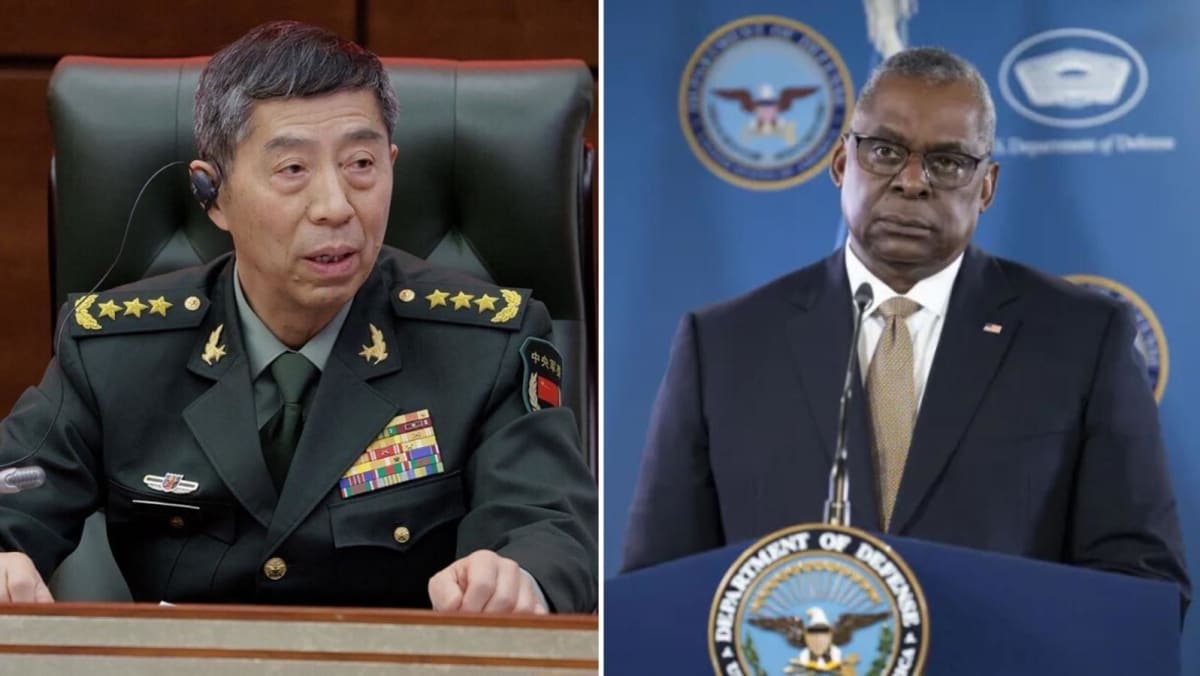
But there has been communication through different channels recently. On May 8, Chinese Foreign Minister Qin Gang met with US ambassador to China Nicholas Burns, suggesting the “pressing task is to stabilise the China-US relationship”.
Burns then met Chinese Minister of Commerce Wang Wentao on May 11, who subsequently went on to meet US Commerce Secretary Gina Raimondo on May 25 for “candid and substantive discussions” on the commercial relationship, according to the US readout.
The Wang-Raimondo meeting was the first Cabinet-level link-up since the balloon incident, but an arguably higher-level meeting was held on May 10 to 11 in Vienna between US National Security Advisor Jake Sullivan and Politburo member Wang Yi, China’s senior-most diplomat. This meeting was a small step down from the Beijing trip US secretary of state Antony Blinken had planned in February and cancelled after the balloon incident, but still represented a willingness to engage at a senior level.
BUTTER, NOT GUNS
The series of meetings seemed to indicate a burgeoning rapprochement between the US and China. With both countries harbouring economic concerns, in the US as the inflationary fallout from the Ukraine war translates into higher interest rates and a possible recession, and in China as its post-COVID recovery sputters, greater communication seemed mutually beneficial.
But with China then rejecting an Austin-Li meeting, and not yet agreeing to a call between President Xi and President Biden despite weeks of Washington’s requests, a limit to re-engagement appears to have been reached.
In truth, there are specific circumstances preventing an Austin-Li meeting. The US has maintained sanctions against Li since 2018 under the Countering America’s Adversaries Through Sanctions Act given Li’s role in procuring Russian military equipment. For Beijing, the sanctions on Li are an unacceptable background to any meeting, while Washington has thus far refused to remove them.

